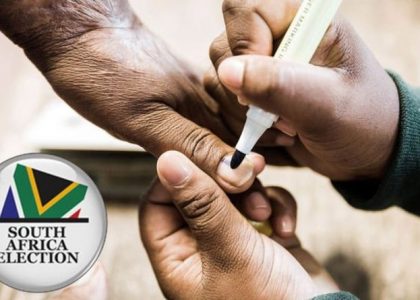As South Africa approaches elections this year, there has been a multitude of divergent perspectives and discussions regarding the proposal by South African politicians to implement a 24-hour economy as a measure to combat unemployment in the country. An economic model wherein the whole or significant part of the architecture or infrastructure of the economy adjusts to support 24-hour operations of businesses, factories, government services, banking, shops, and more throughout the day and night.
This shift in economic paradigm not only stimulates economic vitality but also tackles unemployment issues and enhances global competitiveness. This transition is especially significant in South Africa, considering the persistent struggle with high unemployment rates.
As per the World Bank, South Africa witnessed the highest unemployment rate globally in 2023, standing at 32.4%, with women and youth disproportionately affected. This substantial unemployment rate exacerbates the gap in income inequality and poverty, which was pegged at 62.7% in 2023, using the country’s upper-middle-income poverty line as a reference.
The high rate of unemployment in the country has prompted growing social demands for government support, potentially jeopardizing the sustainability of public finances should these demands be fulfilled. Presently, the South African Social Security Agency (SASSA) is disbursing social grants to more than 26 million South Africans, equating to approximately 42% of the total population, Illustrating an unusually extensive coverage for a developing country.
Figure 1 below depicts that in 2020, the number of salary earners were lower than that of social grant recipients, posing a significant concern for the sustainability of the system and the overall fiscal position.

Therefore, the South African government, regulators, and pertinent stakeholders must devise strategies to tackle the challenge of high unemployment rates in South Africa. For instance, elevated unemployment significantly impedes economic growth, as individuals without employment possess reduced purchasing power, consequently diminishing the demand for goods and services. Moreover, there is a widespread acknowledgment that sustained high unemployment levels often precipitate crime, social unrest, and political instability, as evidenced by the events of the July 2021 unrest.
Challenges in Implementing the 24-Hour Economic Paradigm.
One of the primary obstacles in the implementation of a 24-hour economy in South Africa may revolve around safety and security concerns. South Africa currently contends with one of the world’s highest crime rates, with a crime index of 75.4 as of February 2024. Criminal elements may exploit the cover of nighttime to engage in illicit activities with the intention of evading detection.
One more barrier to establishing a 24-hour economy in South Africa is the nation’s inconsistent electricity supply (Energy serves as a cornerstone of a 24-hour economy). For instance, the various stages of load shedding in the country can cause interruptions and decreased productivity. Manufacturing operations, office tasks, and other activities dependent on electricity may grind to a halt during power outages, leading to lost output and revenue.
Additional notable hurdles encountered in implementing this economic framework include but are not confined to, issues such as labour rights and working conditions, transportation accessibility, and societal perceptions regarding nighttime endeavors. Addressing these obstacles would necessitate cooperation among the government, businesses, communities, and other stakeholders to tackle concerns and establish an atmosphere conducive to extended operating hours.
The feasibility of a 24-hour economy in South Africa.
South Africa boasts one of the most industrialized economies in Africa, so it is reasonable for the country to aspire to follow in the footsteps of nations like the USA, France, UK, China, Japan, United Arab Emirates, Australia, and Germany in implementing a 24-hour economy.
Therefore, the viability of a 24-hour economy in South Africa hinges on several factors including infrastructure, workforce availability, consumer demand, and regulatory frameworks. While certain industries like hospitality, transportation, and healthcare already operate round the clock to some extent in South Africa, expanding this model to other sectors may face challenges as mentioned above.
Therefore, in our view, while establishing a 24-hour economy in South Africa is theoretically feasible, meticulous planning and investment would be essential to guarantee its viability and success, much like in numerous other countries globally. To kickstart a 24-hour economy in South Africa, several key conditions need to be met, including:
- Flexibility in the Labour Market: South African Labour laws and regulations should permit adaptable working hours and conditions, accommodating night shifts and extended operational periods.
- Infrastructure Improvement: The SA Government should provide adequate infrastructure, which includes reliable power supply, transportation, and communication networks, which is vital for sustaining a 24-hour economy. In essence, the government must not only minimize but also eliminate load shedding altogether.
- Security and Safety: Guaranteeing a safe and secure environment is paramount, particularly during nighttime activities. It is essential to implement appropriate law enforcement and surveillance measures to safeguard both workers and businesses. Simply put, criminals should reconsider before engaging in criminal activities in South Africa.
- Government Policies that Foster Support: The South African government should enact policies that promote and assist businesses in adopting a 24-hour operational model. This, for instance, could encompass tax incentives, regulatory revisions, and financial assistance.
In conclusion, the view of a 24-hour economy in South Africa is feasible, however, it is imperative for the Government to tackle the challenges associated with implementing such an economic paradigm. If executed successfully, the South African government and citizens stand to gain from a myriad of benefits including increased employment opportunities, improved business-to-business, optimized resource utilization, heightened spending in the economy, enhanced tourism, increased employee productivity, reduced staffing costs, and amplified economies of scale for manufacturing industries.




Great insights… labour rights are very stringent